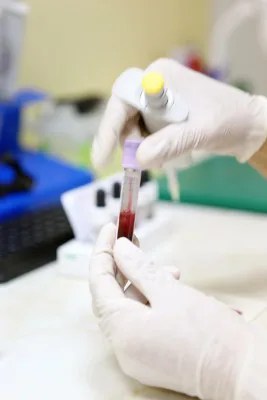We asked Anthony F. Porto, M.D., M.P.H., director of pediatric gastroenterology at Greenwich Hospital in Greenwich, CT, and assistant professor of pediatrics, Yale Medical Group. Read Dr. Porto’s advice on what age kids should be tested for high cholesterol, what the risk factors are for developing high cholesterol at an early age, and how to prevent the diseases caused by high cholesterol.
 High cholesterol is a risk factor for coronary heart disease in adults, but some children may be at risk for premature coronary heart disease if they have high cholesterol levels earlier in life. The National Lipid Association has issued new guidelines stating that all children between 9 to 11 years of age should be screened for high cholesterol. In addition, children with a family history of premature heart disease and high cholesterol should be screened at age 2.
High cholesterol is a risk factor for coronary heart disease in adults, but some children may be at risk for premature coronary heart disease if they have high cholesterol levels earlier in life. The National Lipid Association has issued new guidelines stating that all children between 9 to 11 years of age should be screened for high cholesterol. In addition, children with a family history of premature heart disease and high cholesterol should be screened at age 2.
Heterozygous familial hypercholesterolemia (FH) is an inherited condition that occurs as frequently in 1 in 500 people. Children with one parent with FH have a 50 percemt chance of inheriting FH. It is associated with high cholesterol, particularly high LDL (“bad”) cholesterol. With high amounts of “bad” cholesterol in the blood, individuals are at increased risk for premature atherosclerosis (hardening of the arteries) and may develop heart disease, myocardial infarctions (heart attack), and strokes at an early age. Because individuals with FH are often asymptomatic for years, people can go undiagnosed for years and present only after years of disease progression. The earlier that someone is diagnosed, the better it is for long-term health.
There is no cure of FH but early identification of children with familial hypercholesterolemia is essential to provide early treatment and prevent long-term problems. Treatment begins with dietary changes that include eating a healthy diet that is low in total fat and minimizes intake of saturated fat. Individuals should also eat foods with high fiber content and a wide array and adequate servings of fruit and vegetables. Diet changes can decrease cholesterol levels by as much as 10 percent.
Individuals should maintain an active lifestyle; ideally, exercising on most days for at least 30 minutes is recommended. If diet and exercise changes are not sufficient to lower cholesterol, a variety of cholesterol lowering drugs can be started.
Once children have been tested for familial hypercholesterolemia with a fasting lipid panel, they should be referred to a lipid specialist who can monitor lipid levels, ensure that diet changes have been implemented, and decide whether a cholesterol-lowering drug is needed.
-Anthony F. Porto, M.D., M.P.H., director, pediatric gastroenterology, Greenwich Hospital in Greenwich, CT; and assistant professor of pediatrics, Yale Medical Group





















